Charles Pakana:
We’re sitting here at the Portland Foreshores, less than 18 hours out from the commencement of the Walk for Truth with Commissioner Travis Lovett. Travis, thanks for joining us again on this historic point in time.
Commissioner Travis Lovett:
Thanks very much Unc for having me on and just making the time and the effort to come down early, and to spend some time on country as well. It’s a beautiful feeling and I spent five hours in the car driving down here today and just reflecting on a lot of different things, primarily just family and connection to country and it’s just always beautiful being able to return back home to where my ancestors belong, and where really our people belong, on country.
Charles:
So talking about being on country, my audience always loves it whenever we are… You know what I’m going to ask you now, don’t you? So in language, please, Brother.
Commissioner Lovett:
[Language] .. and just acknowledge country. And I pay my respects to the elders past and present, present, acknowledge that we’re on the lands of the Gunditjmara people, but also acknowledge the many countries that we actually traveled through here today with my family and passed through their countries, and honored them and their ancestors and their connection as well. And also acknowledge that I left Wurundjeri country, which is where I currently live and reside and advocate for our people’s rights and interests. But yeah, it’s always, and I think there’s another really important part of the Walk for Truth, Unc is honoring our LORE and our laws and customs. And this is something that I’m really proud about the walk is that I’ve been able to work with all the traditional owners along the route and seek their approval. We’ll have more to say about that in the interview here today about the authority that they’ve enabled.
Charles:
You mentioned before we came on and did this interview, well, we’ve done the hard yards. Well, my retort to that was, well now you’ve got the hard kilometers. You’ve got 25 days of hard walking ahead of you, some of that by yourself, some with community. Where do you think if any point you’re going to hit a bit of a wall?
Commissioner Lovett:
Yeah, that’s a really good question Unc and I think that I haven’t truly reflected on when that will be, but part of this walk is talking about the highs and lows and the contributions that our people have made in this state here in Victoria. But I’m also have made a commitment to myself and my family, but also to people along this walk that I will share the highs and lows of me and how I’m feeling each day as well. Because there’s going to be some days I’m going to be riding really high and just beaming off the energy of everyone and so forth. But then there’s going to be days of feeling down and feeling low because this is truth-telling at the end of the day, Unc.
And we’re here to shine a light on the true history of Victoria, and that means stopping at places like Convincing Ground. And there’ll be other massacre sites as well of deep significance and that bring up deep traumas, and depths of sorry business as well. So you can’t always be walking around on a high. It just would be inhumane to be able to think that you can do that.
Charles:
Of course.
Commissioner Lovett:
So I don’t know when that will be, but there will be a threshold, and as I’ve said many times, I think that it will be for me more of a mental obstacle rather than a physical, because when I say we’ve done the hard yards and I’ve done the hard yards, it’s not just the contributions of the work that the Commission’s done over the four years documenting the true history of Victoria, but also the training and the preparation that I have put in personally to make sure that I’m fit and able to do this walk.
Charles:
So you must have done a fair bit of training.
Commissioner Lovett:
I’ve been doing a lot of training, actually. I’ve been doing a lot of training. I think I’ve torn through two pairs of shoes just in the training in the lead up to this.
Charles:
Oh my God.
Commissioner Lovett:
So I’m not a small person and I’m not light either in a sense. So I’ve gone through a few pairs of shoes, but I’ve also broken in a number of other pairs of shoes to get ready for the walk as well. But most days I was doing 38 K’s in a day to make sure, because I took this process serious. I’m a bit serious about this Walk for Truth, and that’s how passionate and proud I am to be able to undertake this walk alongside many of our people. But also non-Aboriginal people and how we come together and want to walk together into the future, which is what our people have always advocated for.
Charles:
Absolutely. So talking about into the future, let’s go 25 or from now, 26 days into the future to the 18th of June 2025. How do you see that playing out? Where are you walking from and ending up?
Commissioner Lovett:
On June 18, which will mark the 25th day of the walk, we will be walking from the Shrine of Remembrance into Parliament House and stopping at Parliament House where, as I mentioned before about working with traditional owners, each traditional owner group, I will give a message stick, passing on a message from the neighboring tribes and groups onwards. But I’ll be arriving in Parliament to hand over a message stick, our old people’s way of passing on message and customs and laws the way our old people did, but the shrine, and people may say, “Why a shrine on the last day?”
Now there’s a lot of truths that haven’t been shared fully in this country.
Charles:
Absolutely.
Commissioner Lovett:
And the shrine for a lot of our people went and fought for this country that didn’t recognize them. And I know you’ve got a strong affiliation to this as well Unc, with the work that you’ve done with our Aboriginal Remembrance Service Committee over many years. And unfortunately I’m going to miss that ceremony that happens every year. But I wanted to on the last day remember and recognize through this truth-telling process that our people went and fought for this country and they weren’t recognized. And they never received-
Charles:
The Lovetts, of course fought in both world wars.
Commissioner Lovett:
Both wars. That’s exactly right. We’ve had representation of every single of our family members who have represented every single major conflict, not just the wars, but also the major conflicts. And we even have current Lovett family members who are serving today, and I’m incredibly proud of that.
Charles:
So you should be.
Commissioner Lovett:
And words really don’t come to mind about how to really articulate how proud I am of that for the enduring injustices that our people have faced, and to still go and continue to represent a country that doesn’t fully recognize our rights. And I’m not talking about human rights, I’m talking also about our cultural rights as the first peoples of this country, but also to highlight that it wasn’t just the Lovetts that went as well to war. There’s many other families right across the state of Victoria, and I couldn’t think of a better place than the Shrine of Remembrance to start that last day to honor as well, their legacies.
Charles:
Well, let’s talk about the other days. When we spoke, oh, it must’ve been about six weeks ago, I think was the last time we yarned about this. And we were talking about the traditional owners, those countries on which you’d be walking you and the various supporters. And there was still a lot of work being done at that point in time. Just go through the countries you are walking on and the relationships that have been established with the traditional owner groups and the subsequent support.
Commissioner Lovett:
I’ll be walking on my own country, which is Gunditjmara country, and that’s probably the breadth of the walk, at least half of the walk. Gunditjmara country is a big country and quite a lot of the walk, but also then neighboring countries there is Wadawurrung mob. So Eastern Marr is a traditional owner group. So you’ve got, Gunditjmara is a traditional owner group, but it’s still Gunditjmara country. Then Wadawurrung and then through Bunarong, Boonwurrung and also Wurundjeri Country. And there’s a bit of a weave in between backwards and forging from those countries because that’s how country is. So there’ll be multiple groups that we’ve worked with right along the way, and asking them where they want to highlight and how they want to highlight their country as well, places of significance to them.
Now I have to call it out that yes, I recognize that I haven’t been able to walk the whole state from this walk from Portland to Parliament and I want to recognize that, but also I want to be incredibly clear that we’ve invited all our mob from right across to be able to walk with us. And I’ve got calls from mob up in Tatti Tatti country right up the top there saying, “We are coming down, brothers, we’re coming down. We’ll come and support you. We know you can’t walk on our country, but we’ll come and support you.” Wemba mob, Wotjobaluk mob and so forth. All mob from right across have really got behind and supported this walk as well. And I think that that’s something that I’m incredibly proud of, that people are willing to give up their time.
Charles:
Now talking about people giving up their time, there are quite a number of legs of the walk, which are Travis only. Why was the decision made to break it up from having community with you and then just Travis Lovett alone?
Commissioner Lovett:
Really good question, Unc. And I think the whole time that when we planned this process, first and foremost it was working with our people first about appropriacy of country and walking through as well. And then we have, because we live in a modern society where there’s a lot of approvals and councils, approvals and so forth as well that we have to navigate. And I understand that because we want to make sure that everyone’s safe as well. So we have mapped the route accordingly. And we’ve worked with the traditional owners, as I said, but also local government to ensure that we’re using the right route and making sure that the route is safe and accessible for people as well. So when people do see that it’s only myself walking on those particular days, that’s because there was a higher risk on those days, and I wanted to make sure like we do when we protect our elders and respected people, I wanted to respect all people and make sure that the root was completely accessible but also safe for everybody. That’s important to me and that’s important to our people.
Charles:
That also brings up the important question of a lot of the people who want to walk with you and they’ve put their names down to walk with you aren’t exactly spring chickens, and they haven’t been doing 38 kilometers of training every single day. What’s the challenge going to be there with keeping all the collaborators and walkers together? ‘Cause that’s got to be a bit of an issue.
Commissioner Lovett:
Yes, that’s right. I mean, we’ve got contingency plans in place, like what our people do, Unc. We’ve done a lot of deep thinking and deep planning. We haven’t just kind of woken up and said “We’re going to do this.” So we’ve done a lot of contingency planning as well. And there’ll be shorter stops along the way as well. And that’s another also reason why we haven’t opened the whole route up as well for everyone to walk the whole way ’cause it’s tough on the body. A lot of people will be like, “Oh yeah, I jump on the treadmill for 45 minutes. I can do a few K’s on the treadmill there.”
Charles:
That’s a bit different.
Commissioner Lovett:
And you know what? That was me at the start. I’ve got a treadmill underneath my desk at work. So actually sometimes when you do online meetings, I could actually pull it out and I could walk while being in the meetings and I thought, yeah, geez, I’m deadly. I feel good. And then someone said to me, “Yeah, yeah, brothers, but what about walking on the concrete? You got to get your muscles and get everything ready to feel that different load.” And I was like, “Oh yeah.”
Charles:
That’s a different kettle of fish isn’t it?
Commissioner Lovett:
It’s a different couple of fish. So again, so I think this is part of that depth of thinking and planning and also making sure that we’ve got a really solid team around us as well to also not only look after myself, but help everyone and enable everyone to have an experience, but also to make sure that everyone’s safe. And that if we need to stop or there needs to be someone that needs to be cared for and looked after, then there’s first aid there and so forth to help people. So of course it’s over the first couple of days there’s going to be regular reviews on how it’s all going, how we can learn and reflect on how we can do things differently as well. But I’m confident with the planning that we’ve done that a hundred percent people will be safe on that walk.
Charles:
Now, one of the things that I’ve never asked you in the various interviews that I’ve done with you regarding the Walk for Truth is what was the actual genesis? Did you just wake up one morning and think, oh yeah, I’m going to follow in the footsteps of Uncle William or Michael Long, I’m going to do a walk, or was it suggested? What was the genesis?
Commissioner Lovett:
Yeah, I was actually sitting reflecting as I do quite a lot, Unc in my lounge room, sitting on the couch and-
Charles:
That’s in [inaudible 00:13:05]-
Commissioner Lovett:
Around here yeah, sitting on the couch just reflecting, no TV on, just silence. And then I turned to my wife and I said, “You know what? I want to say this.” And then my wife turned around and said, “What?” And I said, “I’m going to walk from Portland where colonization began, where my people are from all the way to Parliament House.”
Charles:
And her reaction?
Commissioner Lovett:
Almost like “Really? Really?”
Charles:
She’s supportive?
Commissioner Lovett:
No, no, no, a hundred percent no. Amazing. And again, that really is coming from a place of, yeah, yeah, really. I’m like, “Yeah, I’m not conning you here. I think we’ve got to do this. I think I want to do this.” And then I said, “Well, no, no, no, I’m going to do this.” And then I’ve talked about a couple other reasons why. Obviously I have a history of walking on country anyway. And also as well, this work that we’ve undertaken over the last four years, the commissioners, and then since myself joining. It’s too important. It’s too important. Our people have called for truth-telling for 191 years, and this is an opportunity when we want to walk together.
Charles:
So that does bring up the last or the second last question, and that is on the 18th of June or the 19th of June, Travis Lovett wakes up. What then?
Commissioner Lovett:
Yeah. Well, I haven’t really thought about that. I’ve just thought of trying to get to Parliament House and hand over those message sticks that the mob will pass to me.
Charles:
And who are these message sticks for specifically?
Commissioner Lovett:
Yeah, the message sticks are really the hand to the Victorian government and the Victorian Parliament about wanting to show and share culture, knowledge practice, but also pass on messages from each mob about what they want to share on those messages of truth-telling and which particular messages. And I will hold those messages and I’ll remember every word that those mobs share with me when we get to Parliament, and we’ll hand those over to them as a sign of resistance.
We’ve always resisted colonizations as a people, and you’ve heard me say before, and I don’t mind repeating myself, we are not resilient people because resilience implies that we just get over it and you can do it again to us. So we’re not resilient, we are resistant, and we’ve always been resistant and we’ve been able to make significant progress. And whilst a lot of the time it’s hard and it’s slow and it’s a grind, but we’ve made significant progress over that 191 years, ’cause our people have resisted and they’ve gone in and they’ve clearly articulated what our people expect and what needs to happen for a very long period of time. But also, there’s been a lot of non-Aboriginal people who have been allies, but also who have made the time and effort to listen and learn and engage-
Charles:
For sure.
Commissioner Lovett:
… and open their minds and open their hearts. And that’s why we’ve been able to make progress as well.
And I think that being able to share those messages back, but also practicing culture, ceremony, dance, that’s incredibly powerful. The missions were set up to wipe out and not share language. Again, I’ve said this before in the hearings, you put our people on rations if you got caught practicing. I mean, I don’t think people fully encapsulate the words rations, Unc. That’s a small amount of food anyway-
Charles:
Yeah, for sure.
Commissioner Lovett:
… or resources, and then you take further away. So being able to express ourselves continually as rightful first peoples of this land and sovereign peoples, being able to practice and see how people engaging in culture and dance and ceremony and having [foreign language 00:16:49] and so forth is just incredibly special. And that’s an act of resistance.
Charles:
Well, let me ask you this last question then, and it’s a question I’ll ask you probably in about a month’s time when we catch up again. And that is, I’ve asked the future for Travis Lovett. We haven’t got a great answer on that, but we will catch up on that later on. But your aspirations for the future of truth-telling, because surely the 18th of June cannot mark the end of truth-telling and truth-capturing here in Victoria. There are still so many communities that want to share the truth. Where do you see it going or what do you want it to be?
Commissioner Lovett:
Yeah, I would, as a proud Gunditjmara man, I would expect that ongoing truth-telling would need to be negotiated as part of treaty. First and foremost.
Charles:
It’s the statewide treaty.
Commissioner Lovett:
It’s the statewide treaty to be negotiated as well. And I think that’s incredibly important. We’ve done a power of work over the last four years, but there’s still more work that needs to be done, as you said. But also, I also have expectations that the rest of the nation and the states re-established to those mob who actually started their processes re-established those processes.
Charles:
We’re looking at Queensland.
Commissioner Lovett:
We are, and also the Northern Territory as well, but all states, we need to call out all states around embracing this process. We have been doing truth-telling for four years here in the state of Victoria, and I’m confident to say nothing’s broken. There’s nothing to be worried about.
Charles:
Absolutely.
Commissioner Lovett:
What I mean by nothing’s broken, there’s nothing to be worried about. We have provided reports and recommendations and we’re about to hand over a final report and an official public record, but there’s nothing to be worried about. And there’s everything to gain. We want to heal as a people. And we hear that non-Aboriginal people also want to walk with us and heal, and truth-telling needs to underpin how we walk forward and needs to be based on truth, justice, healing, and hope.
Charles:
And on that note, Commissioner wishing you all the very best for the next 25 days, and looking forward to seeing you in Melbourne on the 18th of June.
Commissioner Lovett:
[foreign language 00:19:13] and thanks always for the yarn and again, blessed to be able to sit here for the first time, me and you together on my ancestral lands, the Gunditjmara people’s lands. And appreciate the time, the effort, and the energy and the work that you continually do to make sure that our voices are heard, and there’s an opportunity for people to be able to listen to us. Not hear us, Unc, listen to us.
Charles:
Respect.
Commissioner Lovett:
Wurruk.


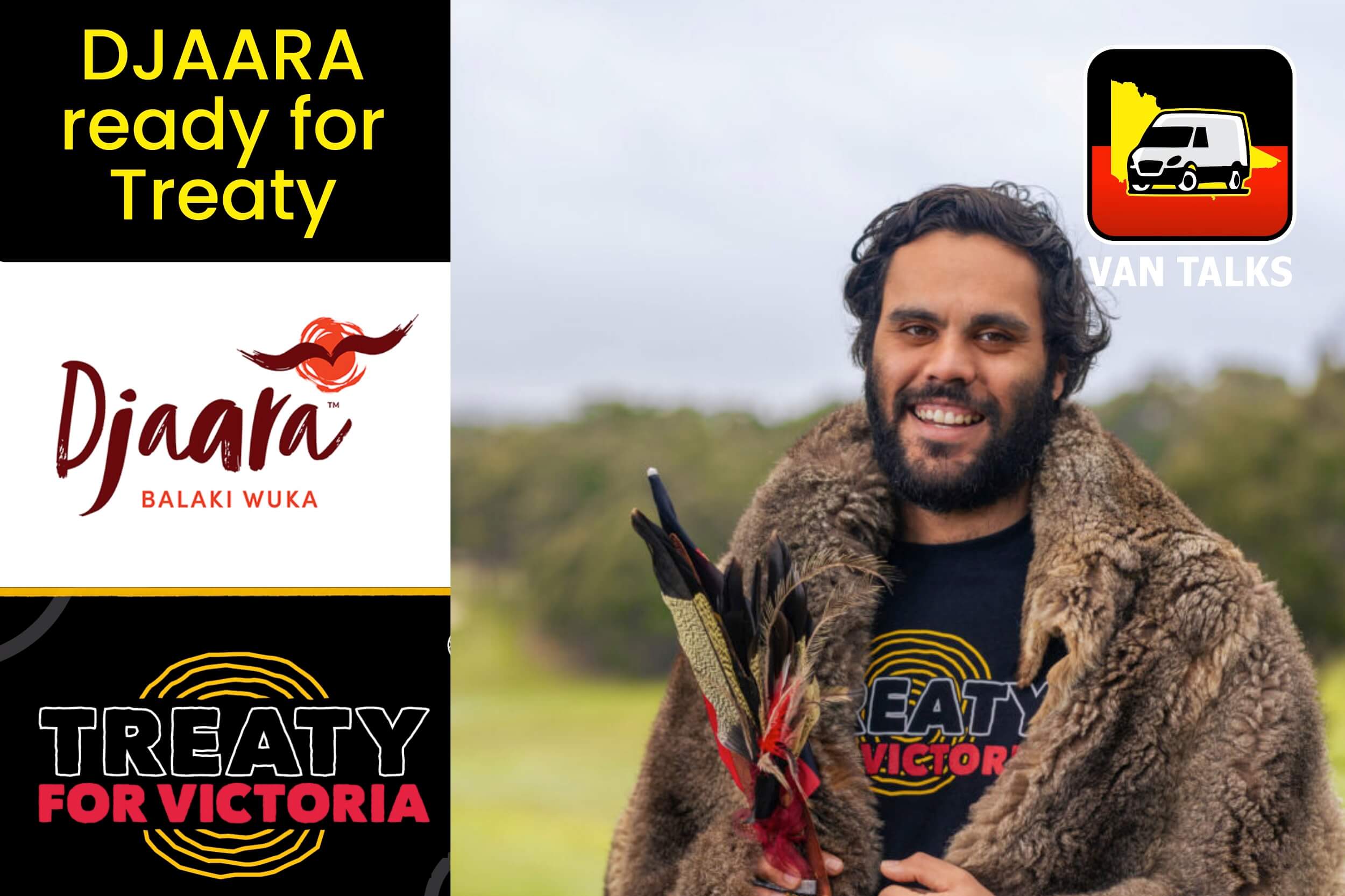
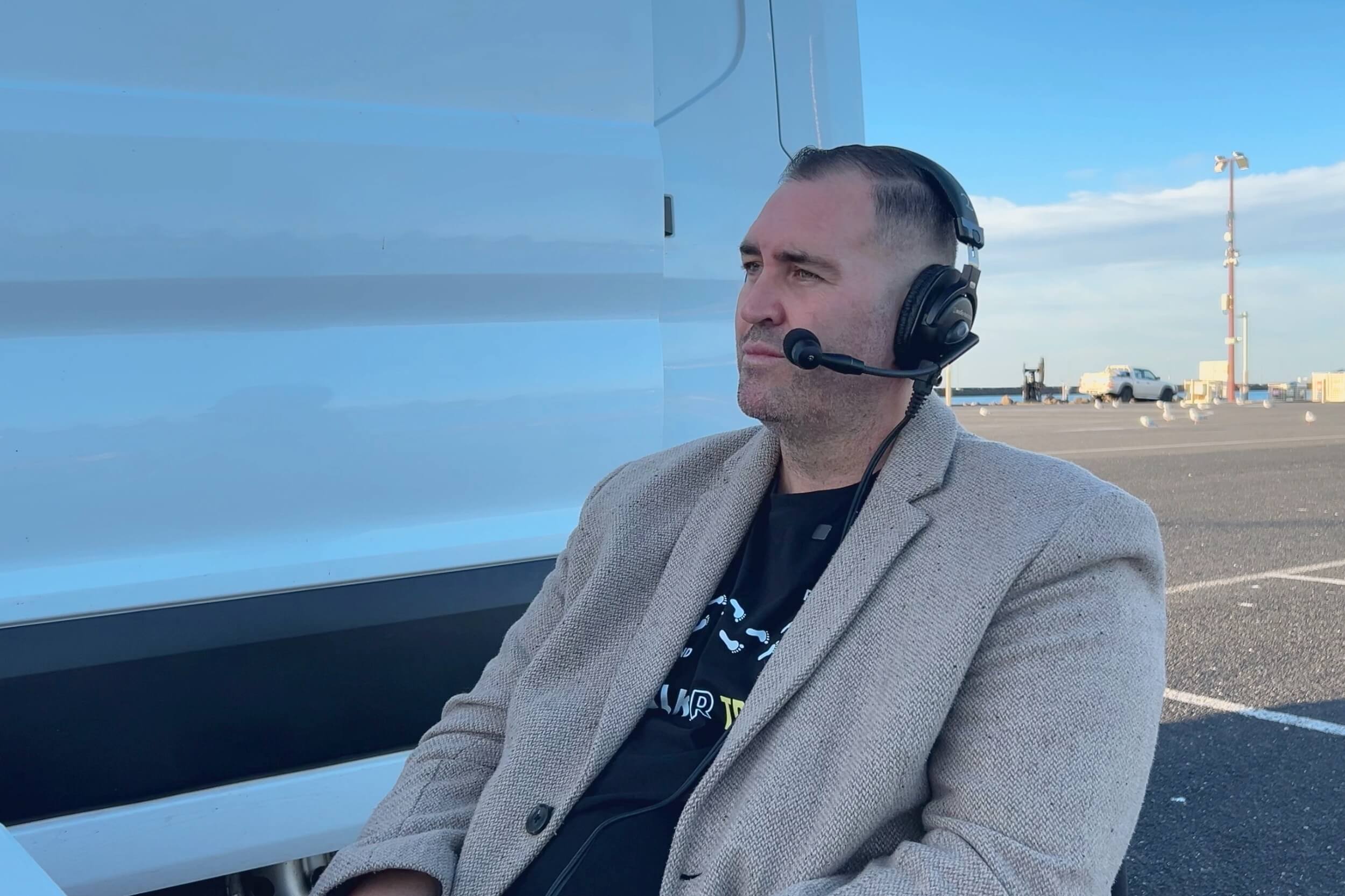
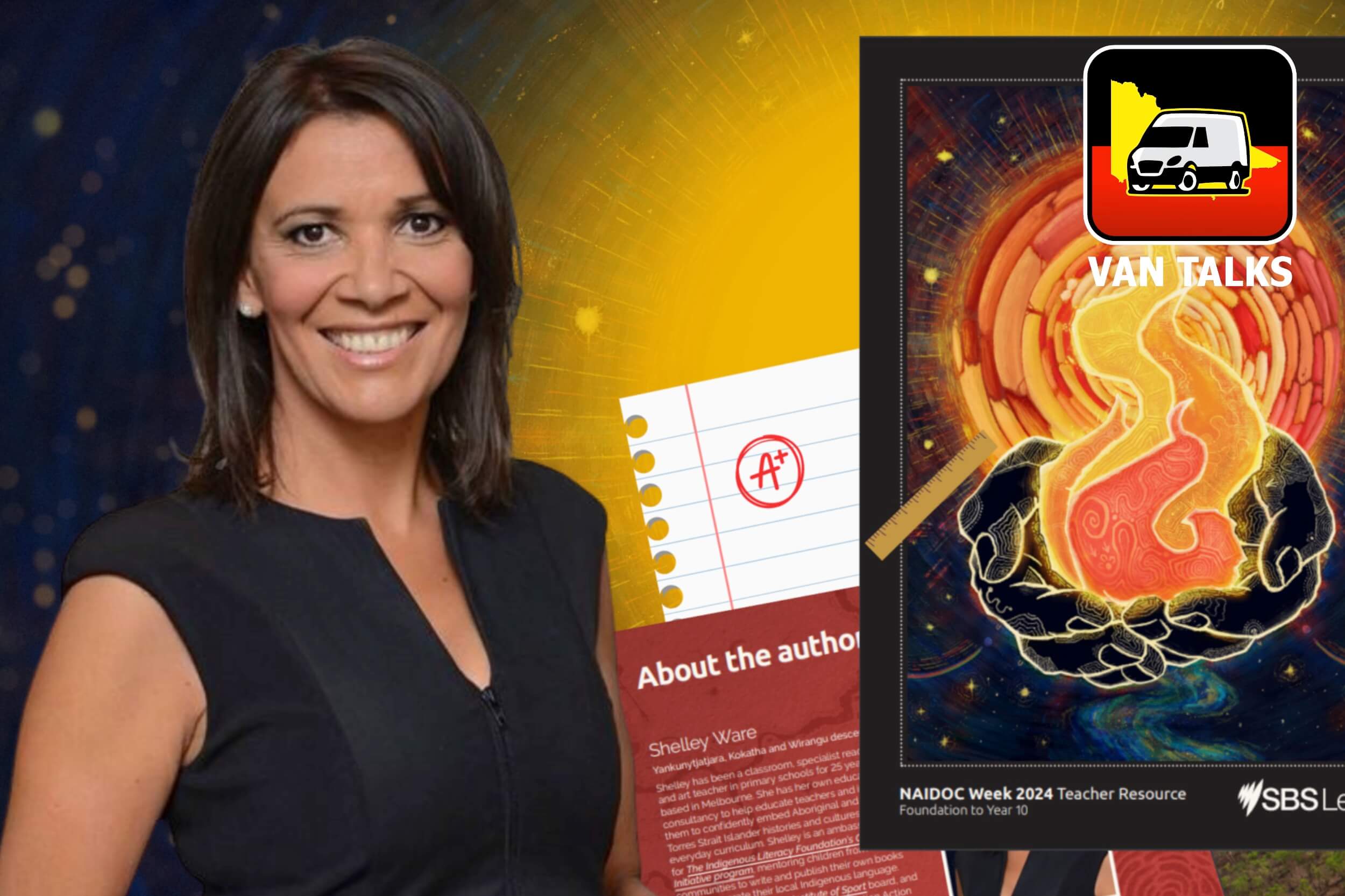
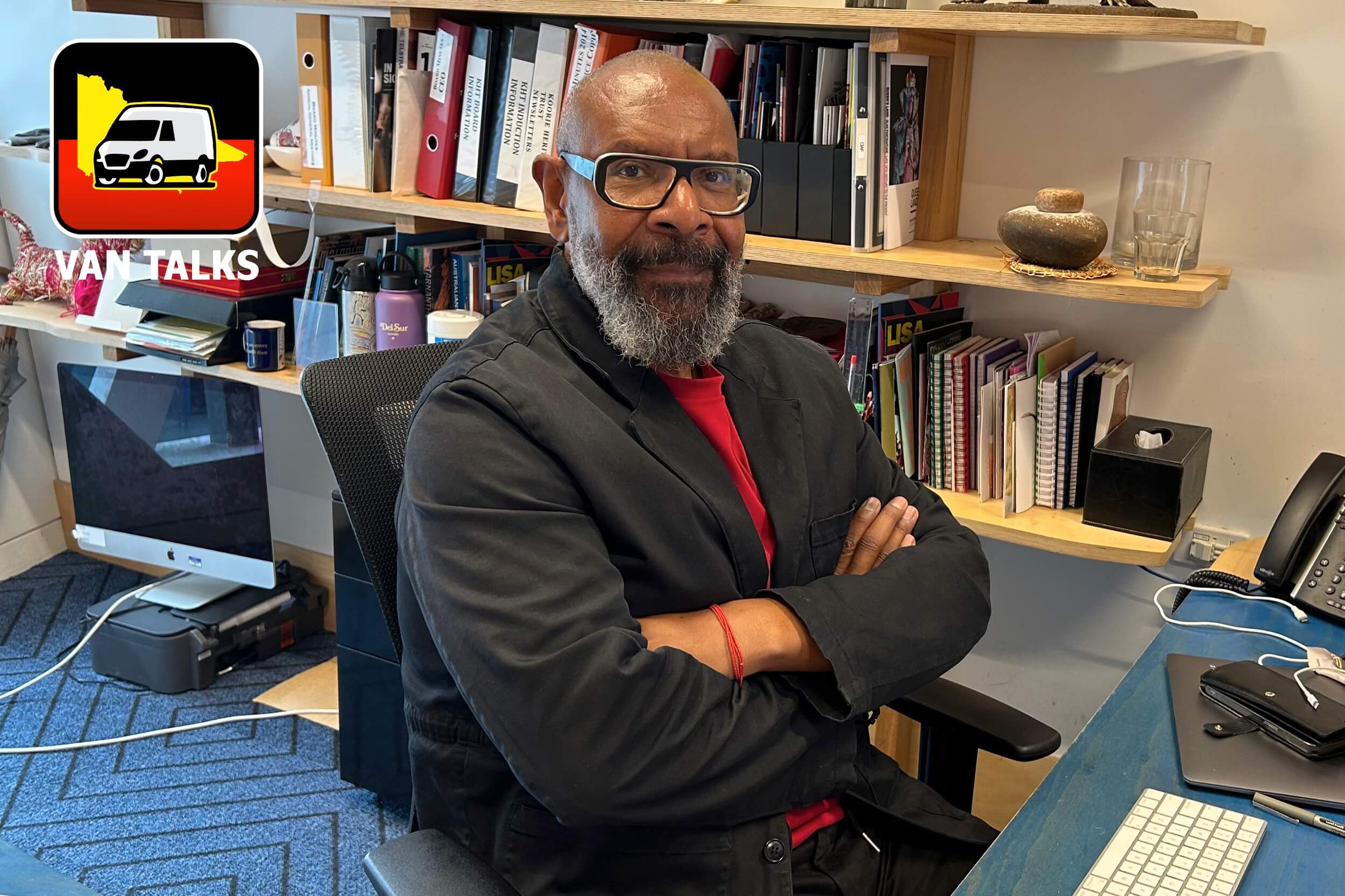
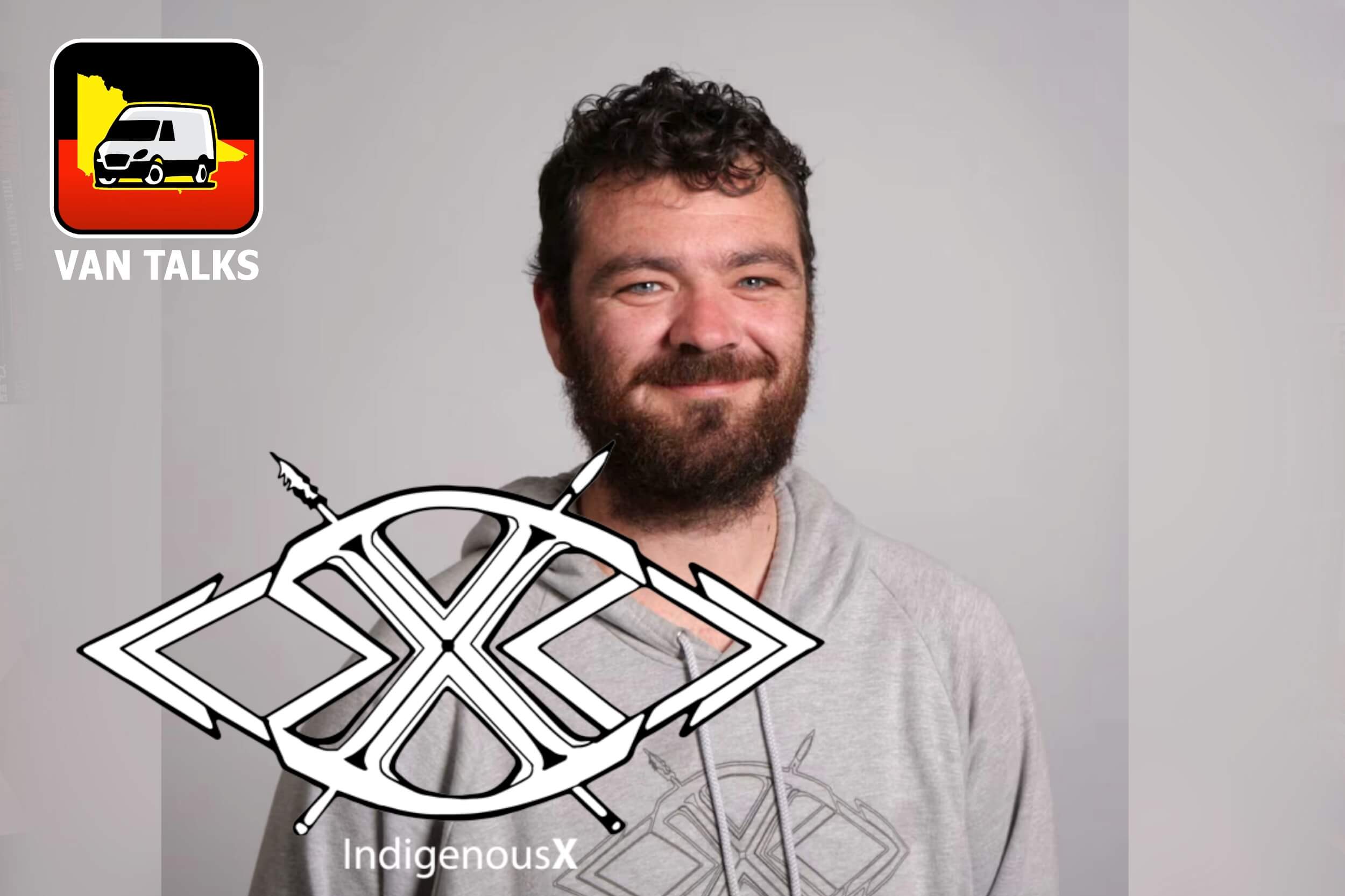

0 Comments